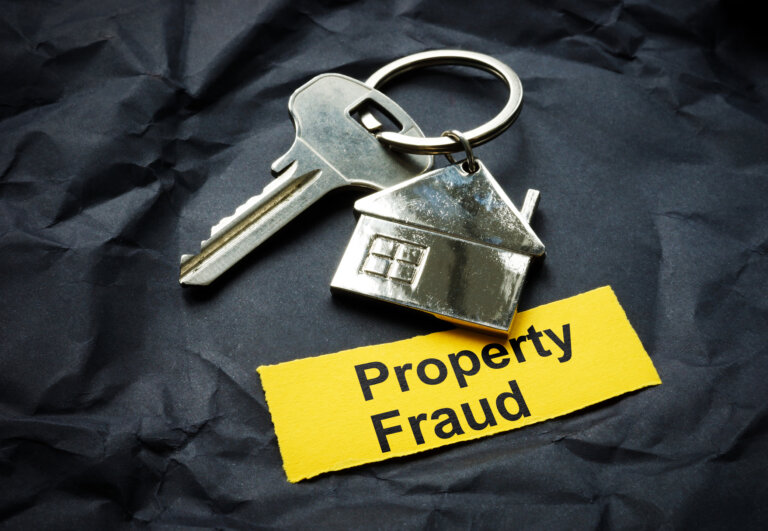Real estate transactions involve significant financial investments, making them prime targets for fraudsters. In Palm Harbor, where the real estate market remains competitive and attractive, scams can take many forms, from title fraud to wire fraud schemes.
Understanding these risks and knowing how to safeguard yourself is crucial. The Law Offices of Jeffrey A. Herzog is dedicated to helping buyers, sellers, and investors protect their interests and avoid falling victim to fraudulent schemes.
Common Real Estate Scams in Florida
Title Fraud
Title fraud occurs when a scammer steals a homeowner’s identity and forges documents to claim ownership of a property. The fraudster may then take out loans against the home or attempt to sell it. Often, homeowners are unaware of the fraud until they receive foreclosure notices or find that their property has been sold without their knowledge.
How to Protect Yourself:
- Regularly check your property records to ensure no unauthorized changes have been made.
- Invest in title insurance to provide an added layer of protection.
- Be cautious about sharing personal information that could be used for identity theft.
Wire Fraud in Real Estate Transactions
One of the most common and financially devastating scams involves fraudulent wire transfers. Scammers impersonate:
- real estate agents,
- attorneys,
- or title company representatives
and provide fake wiring instructions to divert closing funds into their accounts.
How to Protect Yourself:
- Always verify wiring instructions by calling a trusted contact at the title company or attorney’s office before transferring any funds.
- Be wary of last-minute changes to wiring details, especially if communicated via email.
- Enable two-factor authentication on email accounts to reduce the risk of hacking.
Foreclosure Rescue Scams
Homeowners facing foreclosure are often targeted by scammers who promise to help them save their homes. These fraudsters may charge high upfront fees, take over the title to the home, or convince homeowners to sign deceptive agreements that ultimately result in losing their property.
How to Protect Yourself:
- Be skeptical of anyone offering guaranteed foreclosure relief, especially if they request an upfront payment.
- Consult a licensed attorney before signing any agreements related to foreclosure assistance.
- Work directly with your mortgage lender to explore legitimate options for foreclosure avoidance.
Rental Scams
Scammers often pose as landlords or property managers, listing properties they do not own on rental websites. They may request deposits or rent payments upfront before disappearing with the money. In some cases, they break into vacant homes, change the locks, and fraudulently lease the property to unsuspecting tenants.
How to Protect Yourself:
- Always visit a rental property in person before signing a lease or making payments.
- Verify property ownership through public records.
- Avoid wiring money to landlords or property managers without proper documentation.
Real Estate Investment Fraud
Fraudulent real estate investment schemes promise high returns with little risk. Scammers may pitch non-existent developments, fake timeshare resales, or fraudulent joint ventures.
How to Protect Yourself:
- Conduct due diligence on any investment opportunity, including verifying the legitimacy of the developer or company.
- Beware of high-pressure sales tactics and promises of guaranteed profits.
- Consult with a real estate attorney before making investment commitments.
How to Recognize Red Flags
Many real estate scams share common warning signs, including:
- Unrealistic promises: If a deal sounds too good to be true, it likely is.
- Pressure to act quickly: Scammers often create urgency to prevent victims from researching or verifying details.
- Requests for wire transfers or cash payments: Legitimate transactions typically involve traceable payment methods.
- Lack of documentation: A refusal to provide written agreements or official records is a major red flag.
Steps to Take if You Suspect Fraud
If you believe you have encountered a real estate scam, take immediate action:
- Report the incident to the Florida Attorney General’s Office and the Federal Trade Commission (FTC).
- Contact local law enforcement if you have lost money or personal information.
- Consult with a real estate attorney to assess your legal options and mitigate potential damage.
Protect Your Real Estate Interests with Professional Guidance
Avoiding real estate fraud requires vigilance, knowledge, and legal safeguards. By staying informed and working with experienced professionals, you can reduce your risk of becoming a victim.
The Law Offices of Jeffrey A. Herzog provides legal assistance to buyers, sellers, and investors in Palm Harbor, Florida, ensuring their transactions are secure and protected. If you need legal guidance in navigating real estate matters, contact us today to safeguard your investments and avoid costly mistakes.

